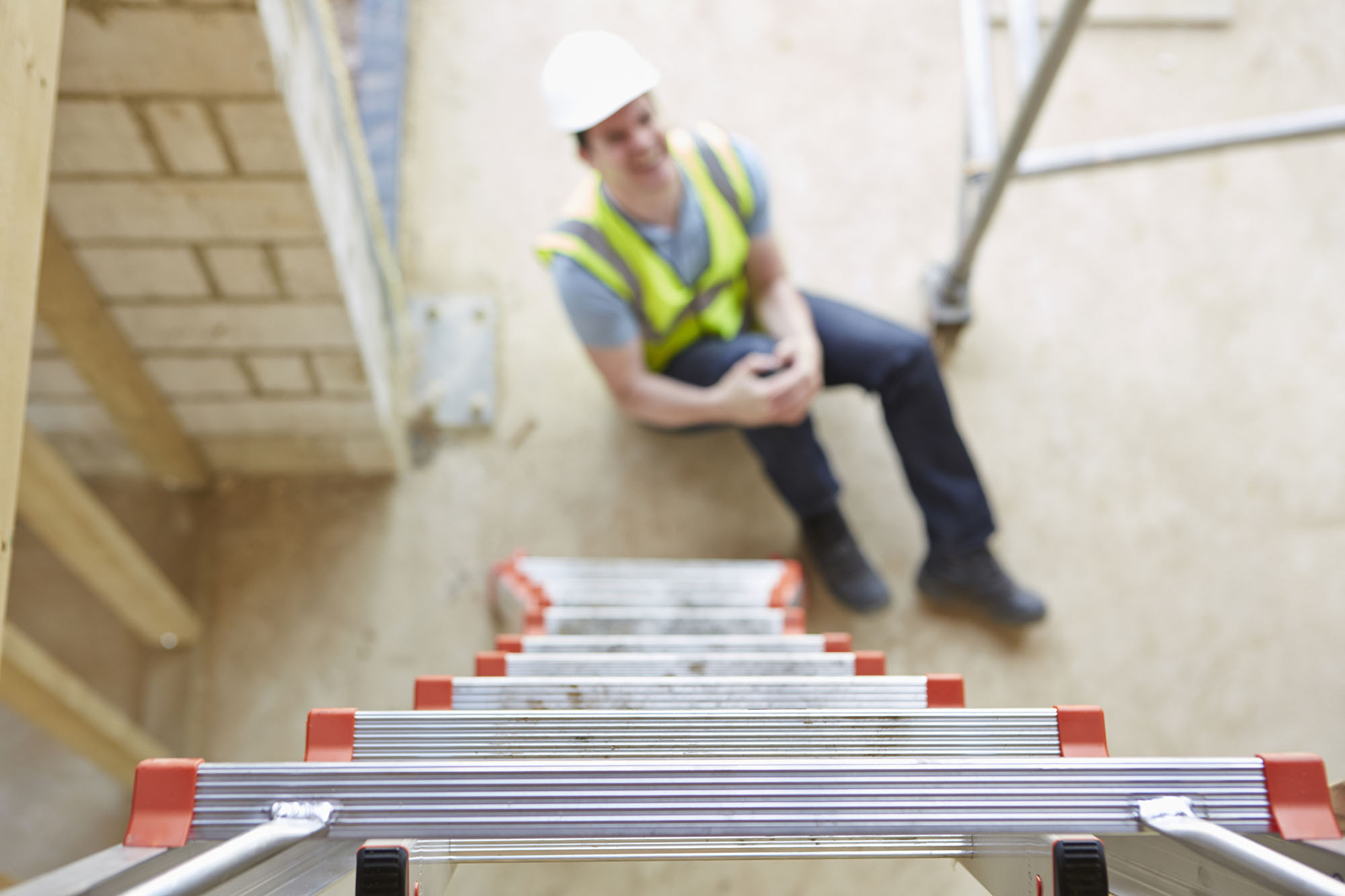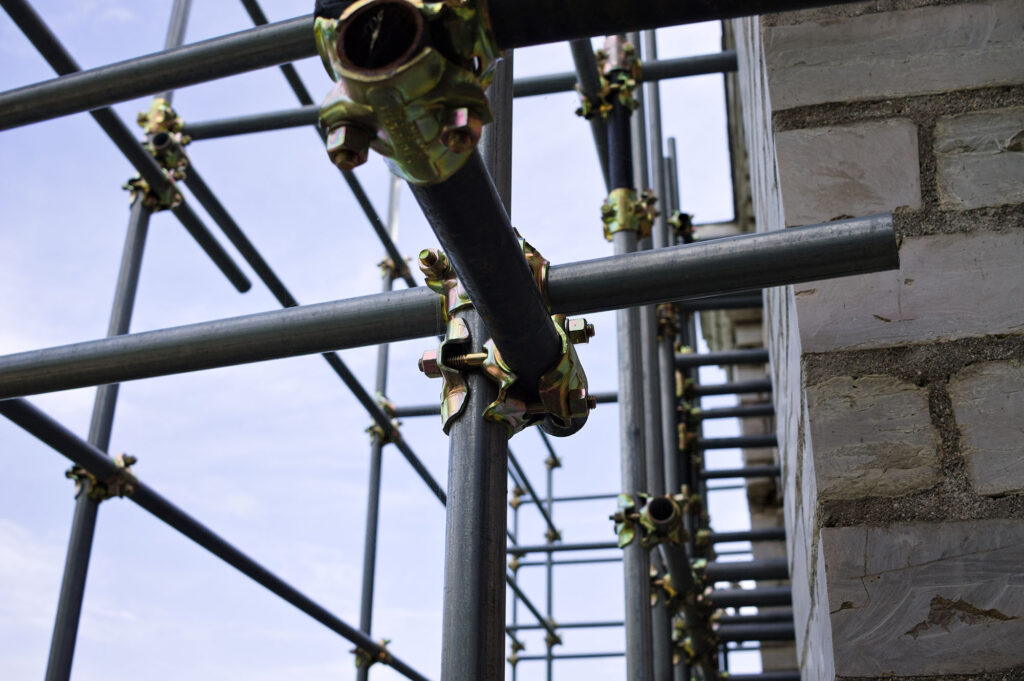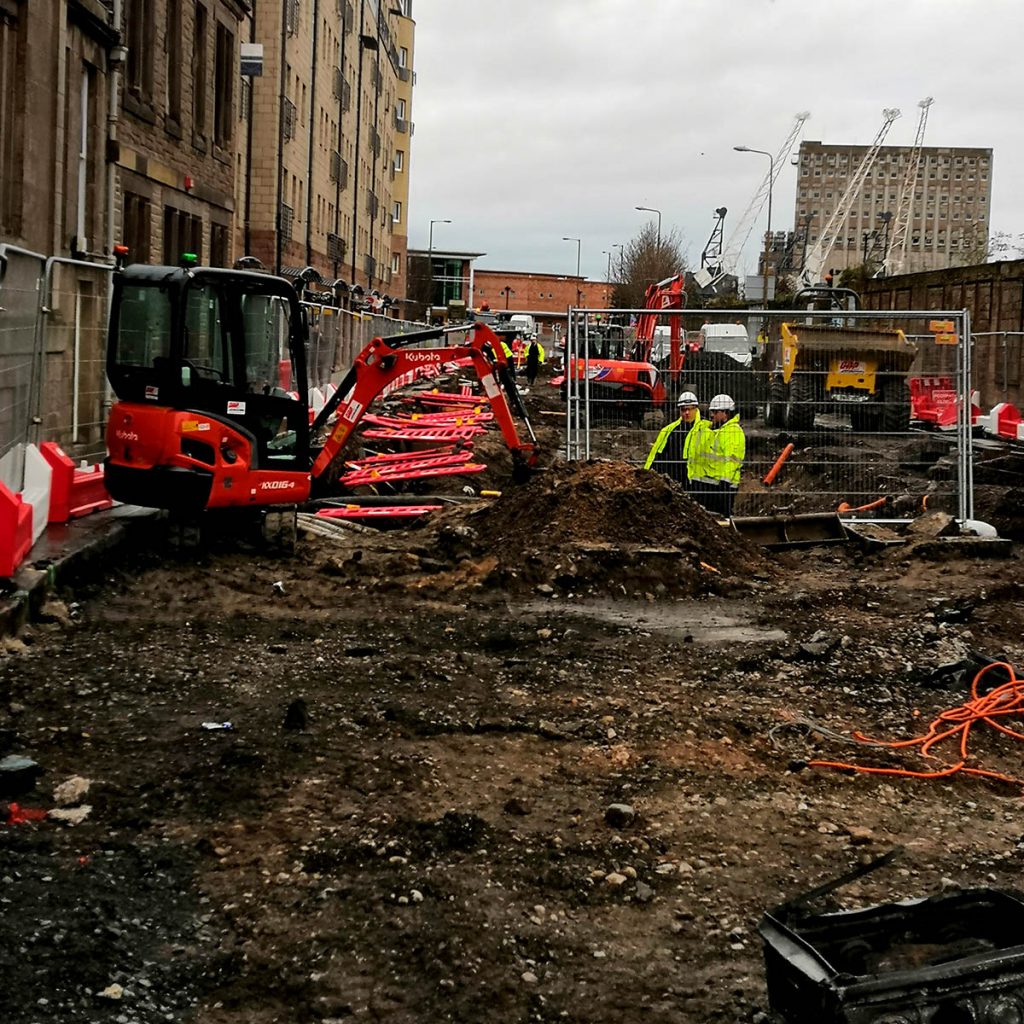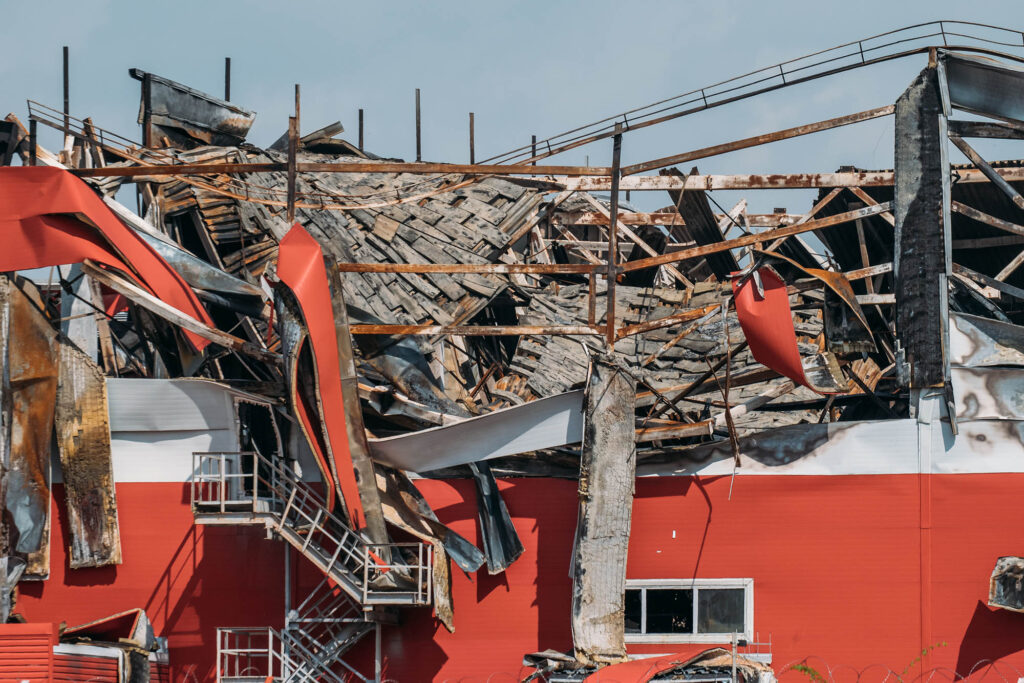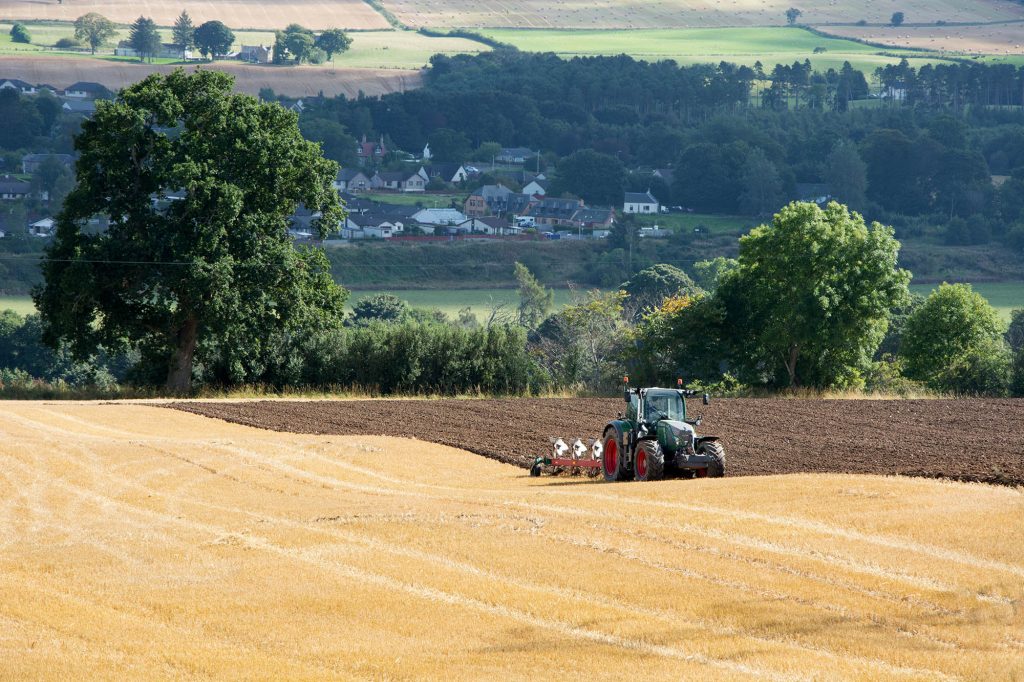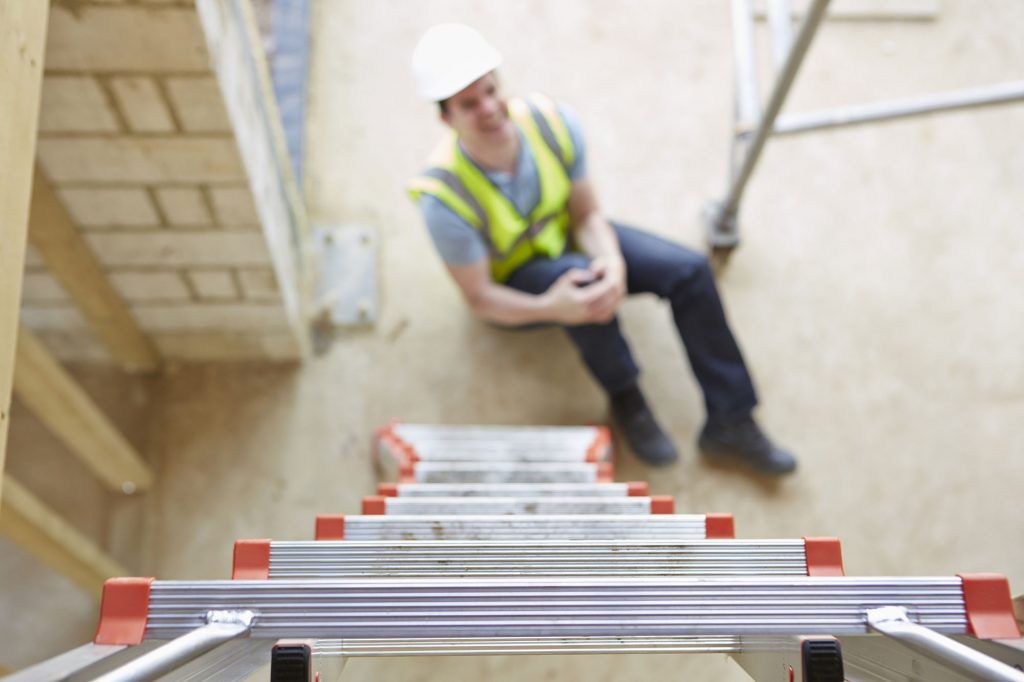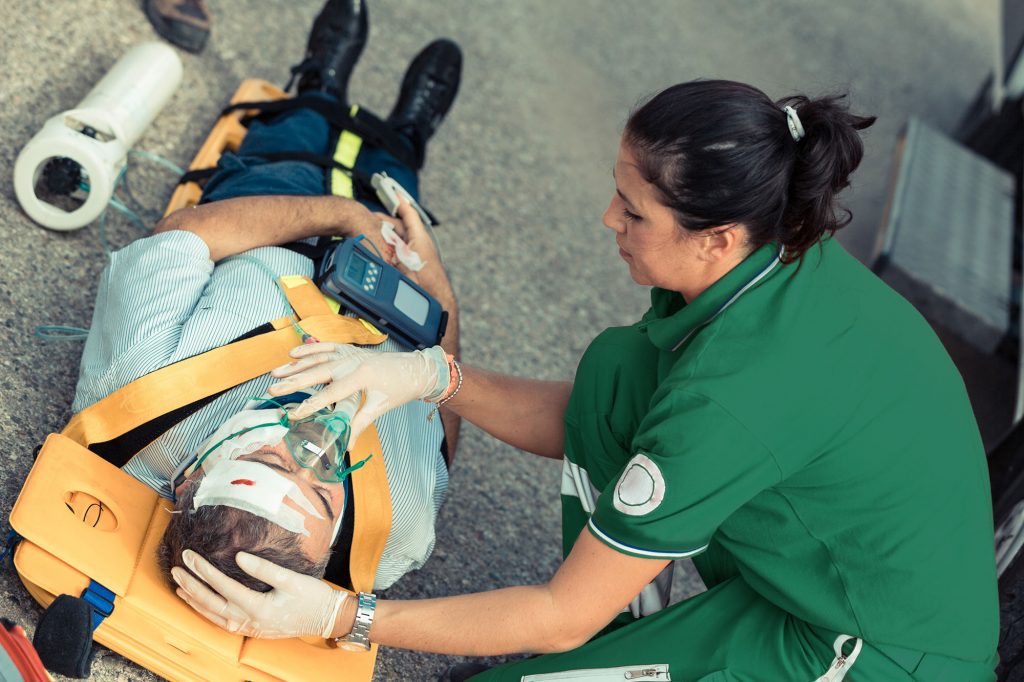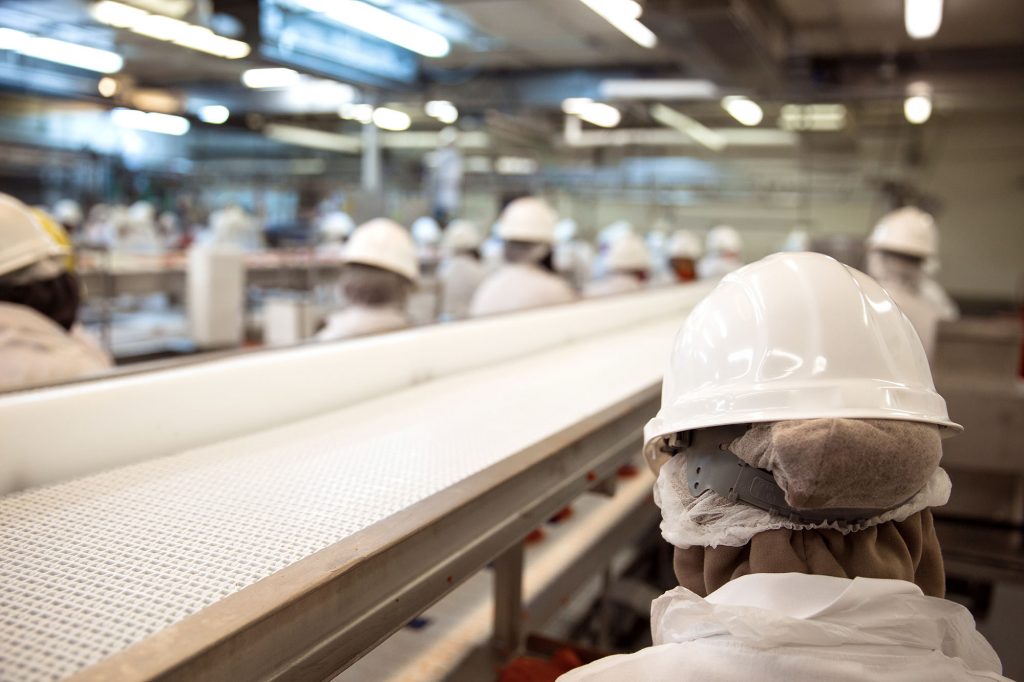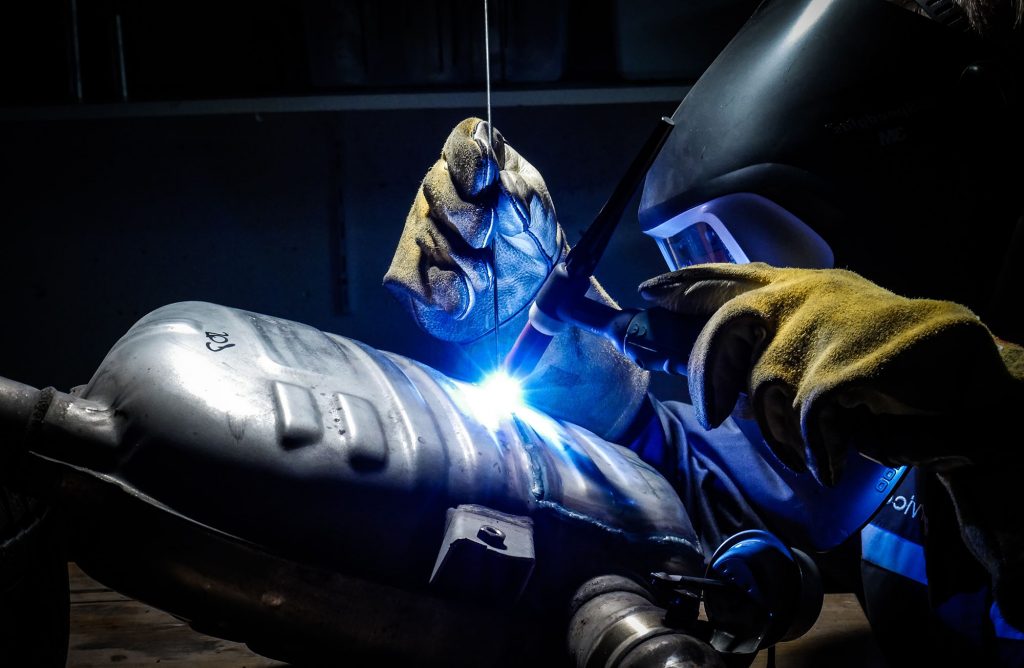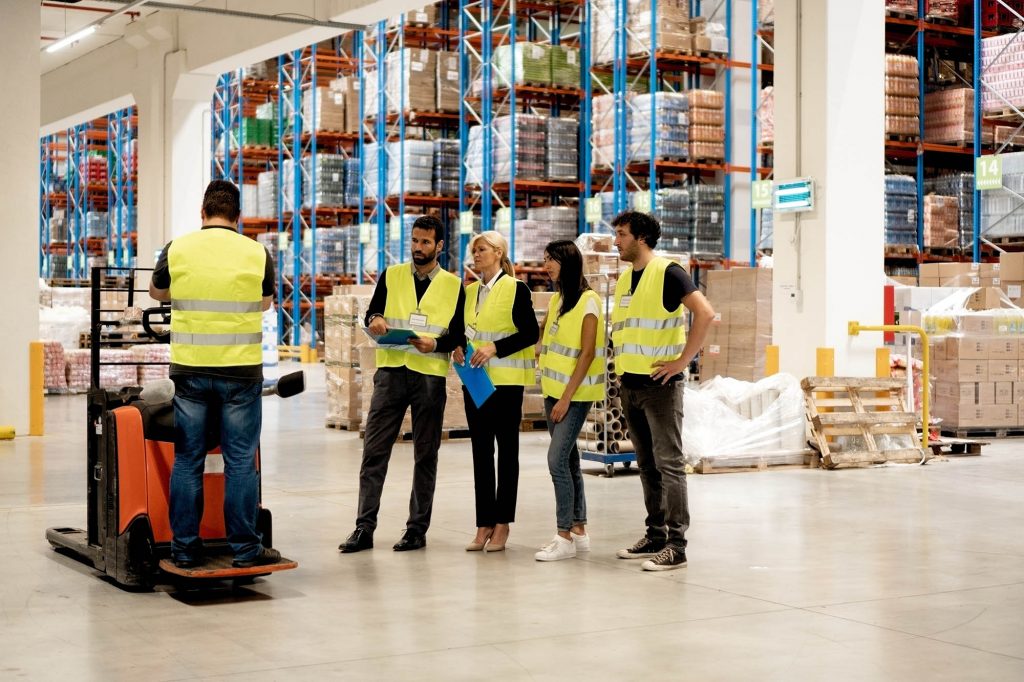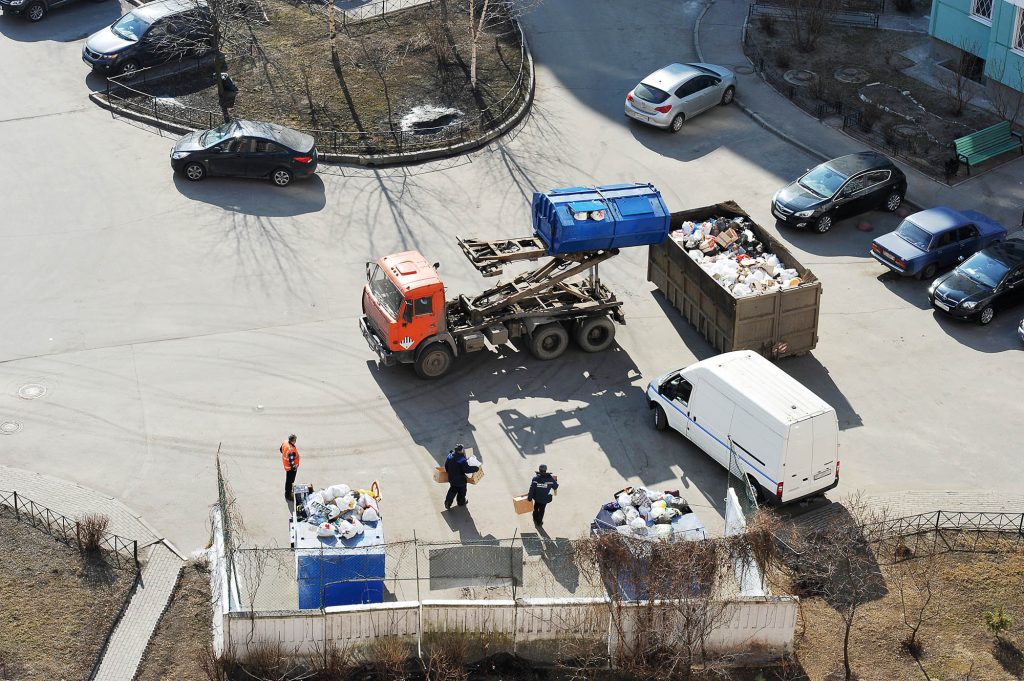Construction & Engineering — Claim Employer Negligence Compensation
If you have suffered an injury whilst working in the construction sector, and want to claim employer negligence compensation, we can help. Contact our expert personal injury claims team today to get a free claim assessment, all no-obligation, and to see if you can claim on a no win, no fee* basis. Call today on 08082391859^.
Construction Health & Safety in the UK
The construction sector is perhaps one of the most dangerous of all industries for employees. Not only does the building and construction industry have some of the highest injury, fatality, and illness rates in the UK, the scope of these problems is extremely wide-ranging. From asbestos exposure to slips, trips & falls; from musculoskeletal disorders to falls from height deaths, work in this industry can pose a serious hazard to workers in many, many ways.
Construction is widespread across England, Scotland & Wales. It is just as present in constantly growing areas like London, as it is in smaller rural areas like those in the South West. The sector includes a variety of job roles in: building construction, civil engineering, and it also encompasses skilled professionals like plumbers, electricians, and joiners. The industry as a whole accounts for around 7% of the UK’s workforce.
The actual skill-level of employees in construction is just as wide-ranging as the hazards. It includes complex projects for, say airports, that requires a great deal of knowledge and industry experience, as well as entry-level jobs like bricklaying, colloquially known as “brickies.” This means that employers have a myriad of competence levels and roles to manage. Statistics show workers tend to be especially prone to accidents at work in the first 6 months of employment. Therefore, training, PPE and adherence in regulation are so especially important. When these aren’t up to par, employee safety is at risk, and employers become liable for damages through their negligent practices.
Claim compensation for an injury or illness from working in building or engineering with our solicitors.
There have been an estimated 79,000 construction employees coping with a new or aggravated illness or disease, they attribute to their workplace in 2019. There is also a high rate of asbestos exposure cases from previous employment in construction. In the same year, there was 54,000 workers sustaining injuries from accidents that weren’t fatal. During that time, 30 construction workers lost their lives, with around half from falling from a height. The breadth of hazards present to workers means we are constantly handling cases of a mixed nature. We aim to hold employers to account for however they have affected you, and we have years of experience successfully claiming compensation for employees.
Regardless of what construction job you have — or how you’ve suffered — speak to our team if the problem is a result of your employer or workplace. We can help you build a case for compensation on a no win, no fee* basis. Our team is available 24/7 on 08082391859^ and will give you a free claim assessment and guide you through your claim with expert guidance and knowledge of the pitfalls of working in construction.
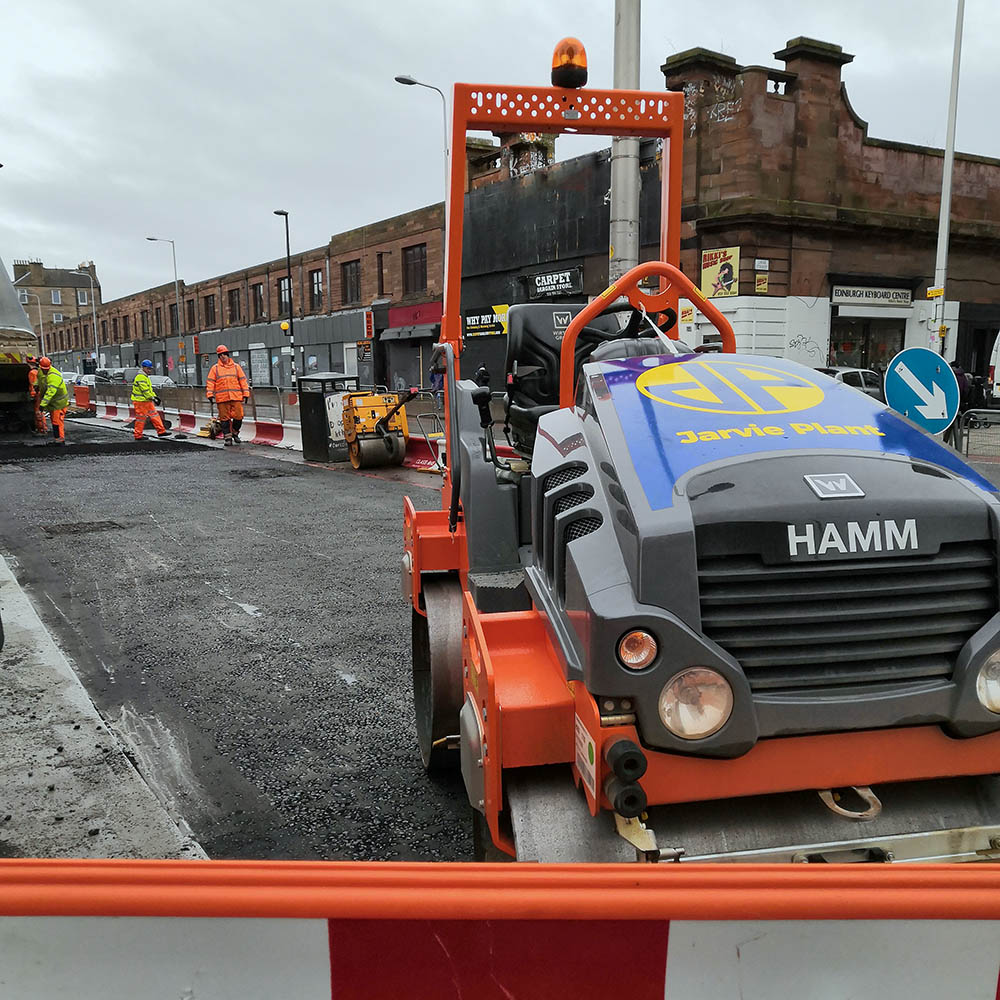
What types of jobs does construction include, and can I claim compensation from them?
The SIC for construction — section F — includes 3 main divisions: construction of buildings, civil engineering and specialised construction activities. Building construction covers working with new builds for office blocks, utility structures and residential buildings, as well as repair work and maintenance. Civil engineering encompasses roads, railways, water projects, industrial facilities and electrical supplies; it even includes sport centres and public recreation. Specialised construction, or skilled trades, is a broad area that includes focused types of work, in for instance scaffolding, roofing and utility installation of water, electrical and gas supply. A lot of these skilled trades are often contractual, so will include self-employed workers too. Typically, many of the self-employed that are injured don’t report accidents, so the true number of injury might be higher than estimated.
If there is a case to suggest that your employer is at fault for an illness or injury you’ve sustained, it doesn’t really matter what job you have or division you’re in. Your employer has a duty of care to your safety — breaching that can make them liable for employer negligence compensation. If you’re at all unsure if you have a case to make a claim against your workplace, speak to our team of specialists on 08082391859^ for a free case assessment and expert guidance.
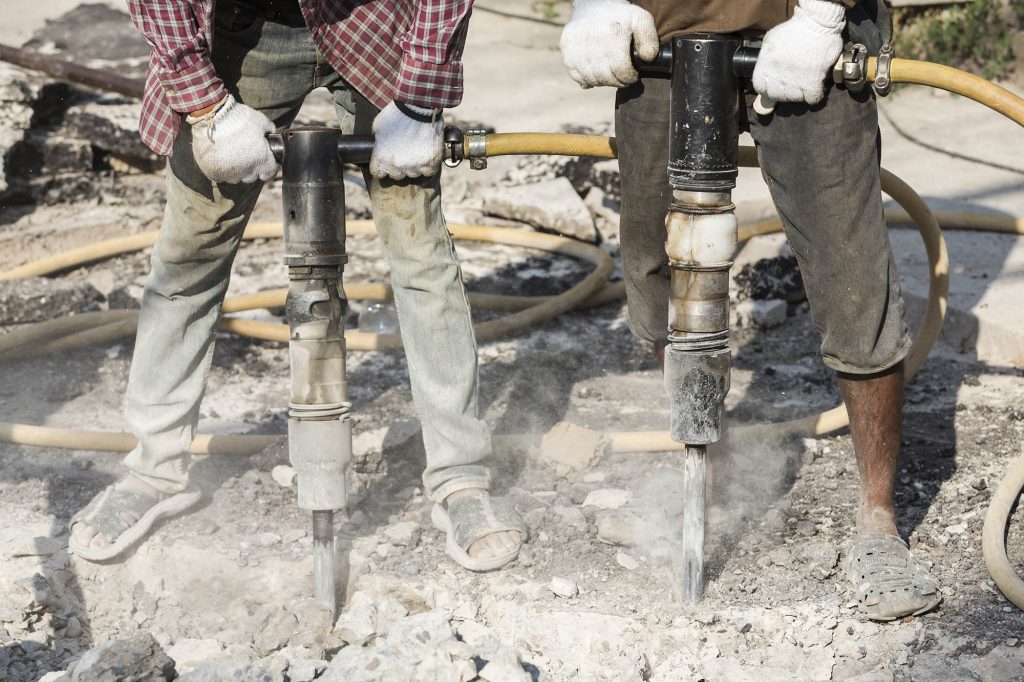
What parts of the UK have high concentrations of building and engineering work?
The UK, being a global economic power and centre for population growth, is constantly expanding and the requirement for building work is fairly constant. Whilst places like London are constantly changing above and below ground, cities in Scotland like Glasgow and Edinburgh are seeing an influx of new construction projects year in, year out. Leeds is also considered a region of growth currently.
Even in more remote locations, skill trades like plumbing are essential. This national need for construction work goes far to explain why there are such common occurrences of injury and illnesses. But it is still up to the employer, regardless of the size or success of their construction business, to keep staff safety paramount in their practices.
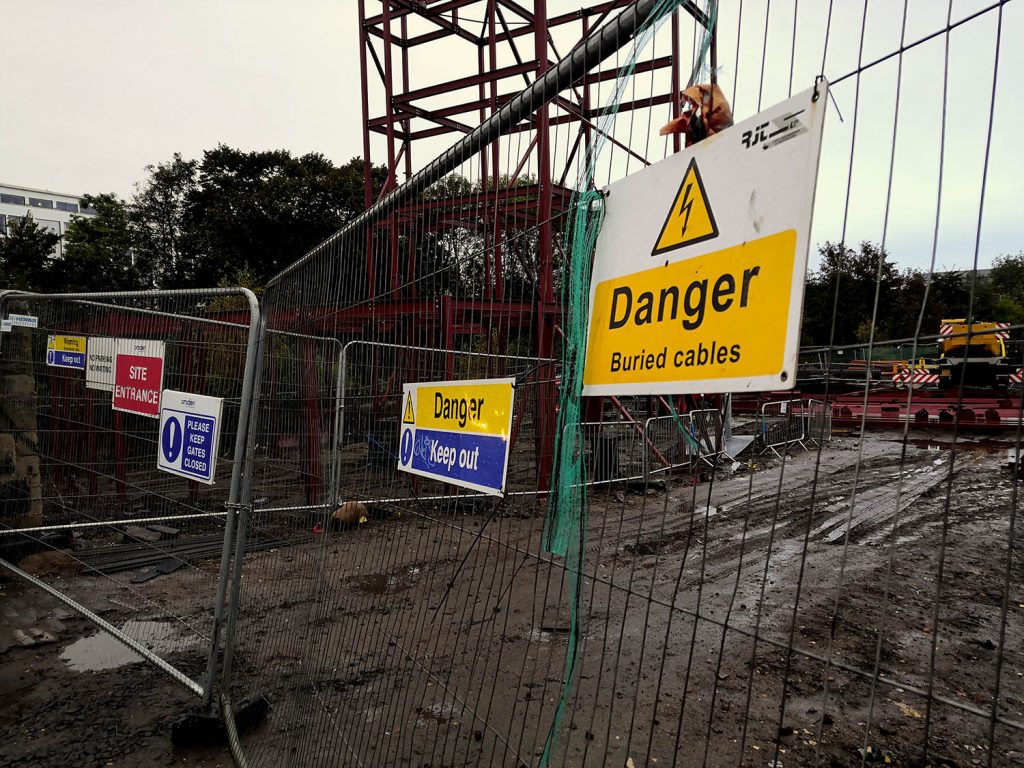
What hazards at work are the most common causes of injury in construction?
Every year, around 2.4% of people working in construction have experienced an accident, when looking at averages for the last few years. With some 7% of the UK population working in construction, that small percentage becomes a significant number, almost double the average for all industries. Whilst that percentage has been declining in recent decades, the number of workers in construction suffering from injuries, often with over 7 days of absence, is still a concern. It is clear that the reduction in numbers is from a greater implementation of safety practices and regulations. It does go to show that there is still more to do in improving and undertaking employee health and safety processes. The hazards still posing significant threat to construction workers are:
- Falls from heights
- Manual handling
- Contact with moving objects
- Dangerous machinery
- Struck by moving vehicles
- Slips, trips, and falls
- Becoming trapped
- Contact with electricity
What occupational illnesses are typical in this sector?
The rate of illness in construction employees isn’t much higher than the other UK sectors, but the number of the below industrial diseases are much more common in construction workplaces. Muscle and skeletal problems, such as back pain or neck issues, are almost twice as common for staff in the construction sector than the rest of the UK workforce. These are typically common occupational illnesses in construction:
- Musculoskeletal disorders
- Occupational cancers
- Mesothelioma
- Occupational asthma
- Chronic Obstructive Pulmonary Disease (COPD)
- Contact dermatitis
- Hand-arm vibration syndrome
- Occupational deafness

What are the main causes of fatalities for construction workers?
The rate of deaths in construction workers is three times that of the average for all UK industries. These numbers have gradually declined from a peak of 9.3 per 100,000 construction workers in the late 1980s. The top causes of construction worker fatalities are:
- Falls from heights — 49%
- Becoming trapped by objects falling over or collapsing — 14%
- Being hit by a moving vehicle — 11%
- Being struck by falling or travelling objects — 10%
- Contact with, or discharge from, electricity — 5%
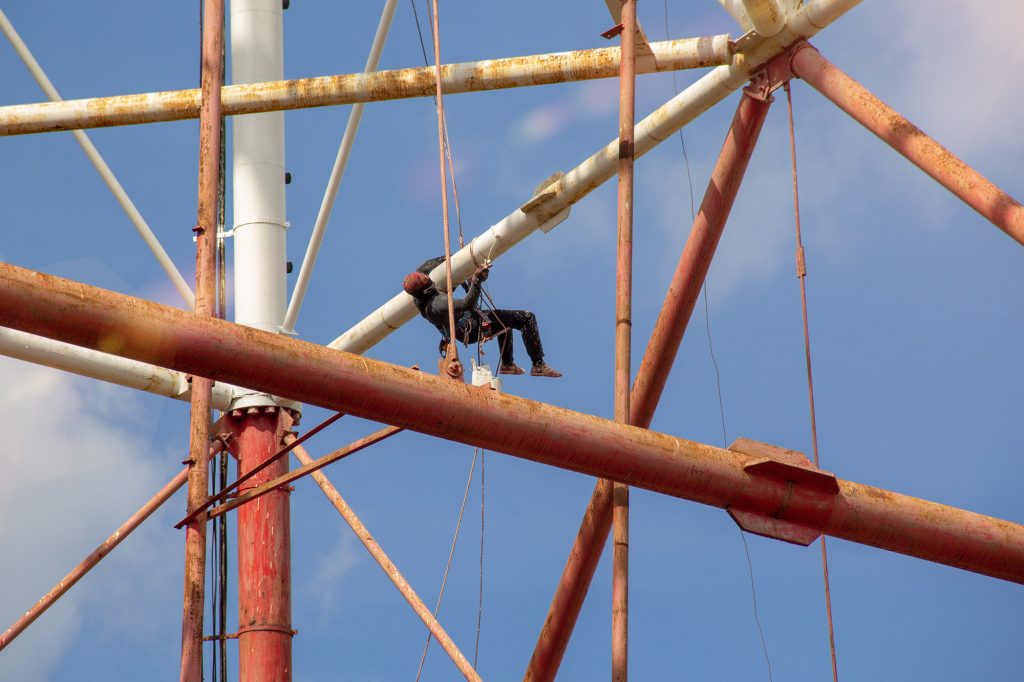
In terms of ill health, there is evidence to suggest that around 46% of males over 70 suffering or dying from mesothelioma can be linked to the construction industry, with 17% alone of the entire group from carpentry work. Amosite, or brown asbestos, which was commonly used for its fire retardants in the 70s, is listed as a key factor in this. COPD, whilst not always fatal, is very common amongst roofers, which is also linked to asbestos exposure, but not exclusively.
Occupational cancer as a whole accounts for 8,000 deaths each year to workers, with about 3,500 of them linked to the construction sector. There are currently 13,500 yearly registrations of cancer sufferers in the UK with causes linked to their workplace. Silica and paint worker are cited as top causative agents for occupational cancer that are particularly common in construction.
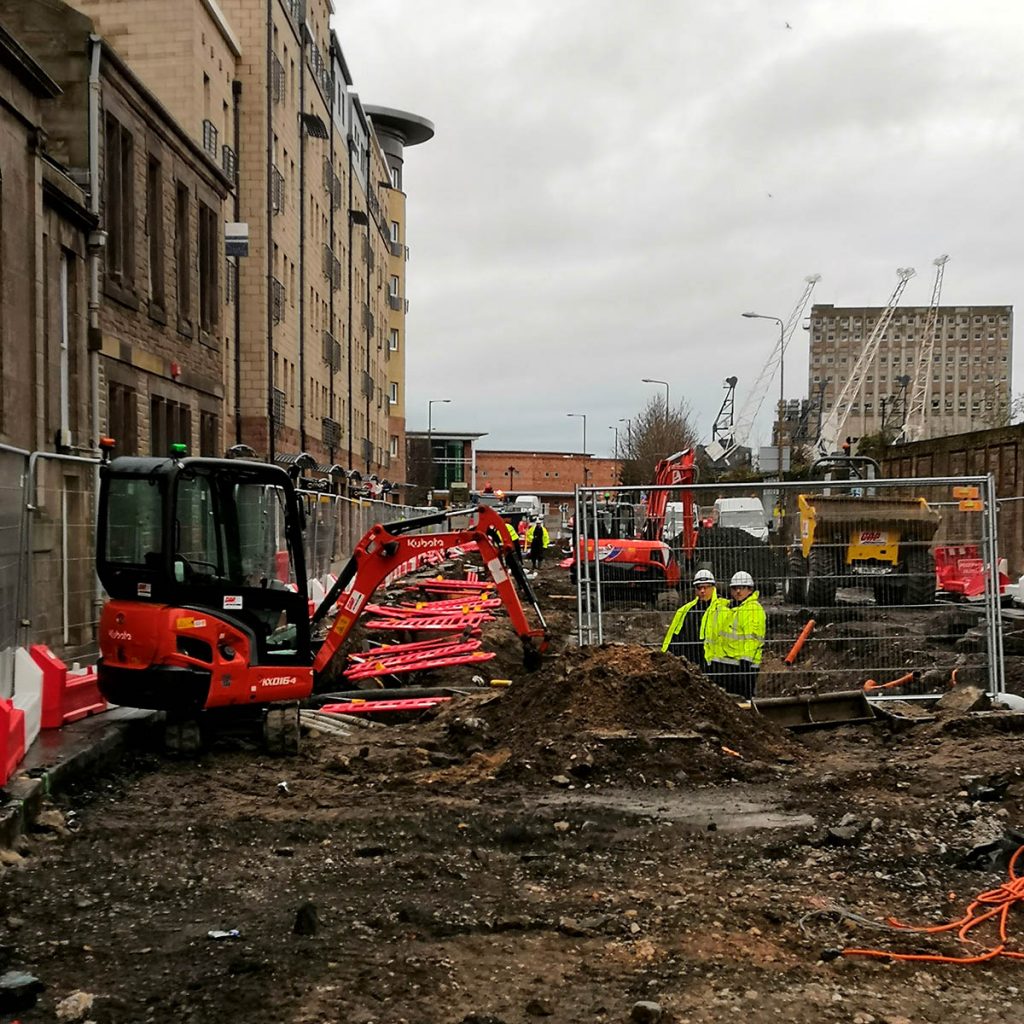
Can I claim on behalf of a loved one who has died or is seriously suffering after working in construction?
We help loved ones claim compensation for loss of life, or if that person has become seriously ill or disabled. We aim to seek damages to help support families during such tragedies to do what we can to ease the burden. Speak to us whenever it suits you on 08082391859^ for friendly and empathetic guidance.
What advantages do I have if I claim for employer negligence compensation against a construction company with Workplace Injury Claims?
- We have a team of technical qualifiers who can assess your claim for free. If they feel you have a case, we bring your claim to one of our panel solicitors — that way you don’t run up any legal fees by just asking questions.
- Our telephony team is open 24hrs a day, but you can leave them a message with our contact form, and they’ll get back to you within a few working days.
- Our panel of employer liability solicitors can work on a no win, no fee* basis, meaning again, you’re not drumming up expensive legal fees by claiming for your personal injury or illness.
- Our team covers the whole of the UK, and you’ll be assigned to a panel solicitor depending on if you’re in England and Wales, or Scotland.
- We have helped many people successfully claim compensation who have worked in the construction sector.
- We can also help with rehabilitation; arranging physio or, in harsher situations, surgery and medical treatment. We offer a whole accident management package.
- We have a UK call centre, based in Manchester, and come from all walks of life.
- We fight for the maximum compensation for you, because ultimately your job is to make the company successful, and they should at least ensure your safety in exchange.
- When we calculate your claim amount, we factor in loss of earnings, general expenses and any ongoing costs incurred, so that you get the highest level of compensation due to you.
- We’re friendly, empathetic and here to help you however we can.

Get in touch with our employer negligence solicitors** today to find out if and how much compensation you could claim.
If you’ve suffered because of work in construction and your employer is at fault, call our helpline today on 08082391859^ to start your claim — we’re here to help.


